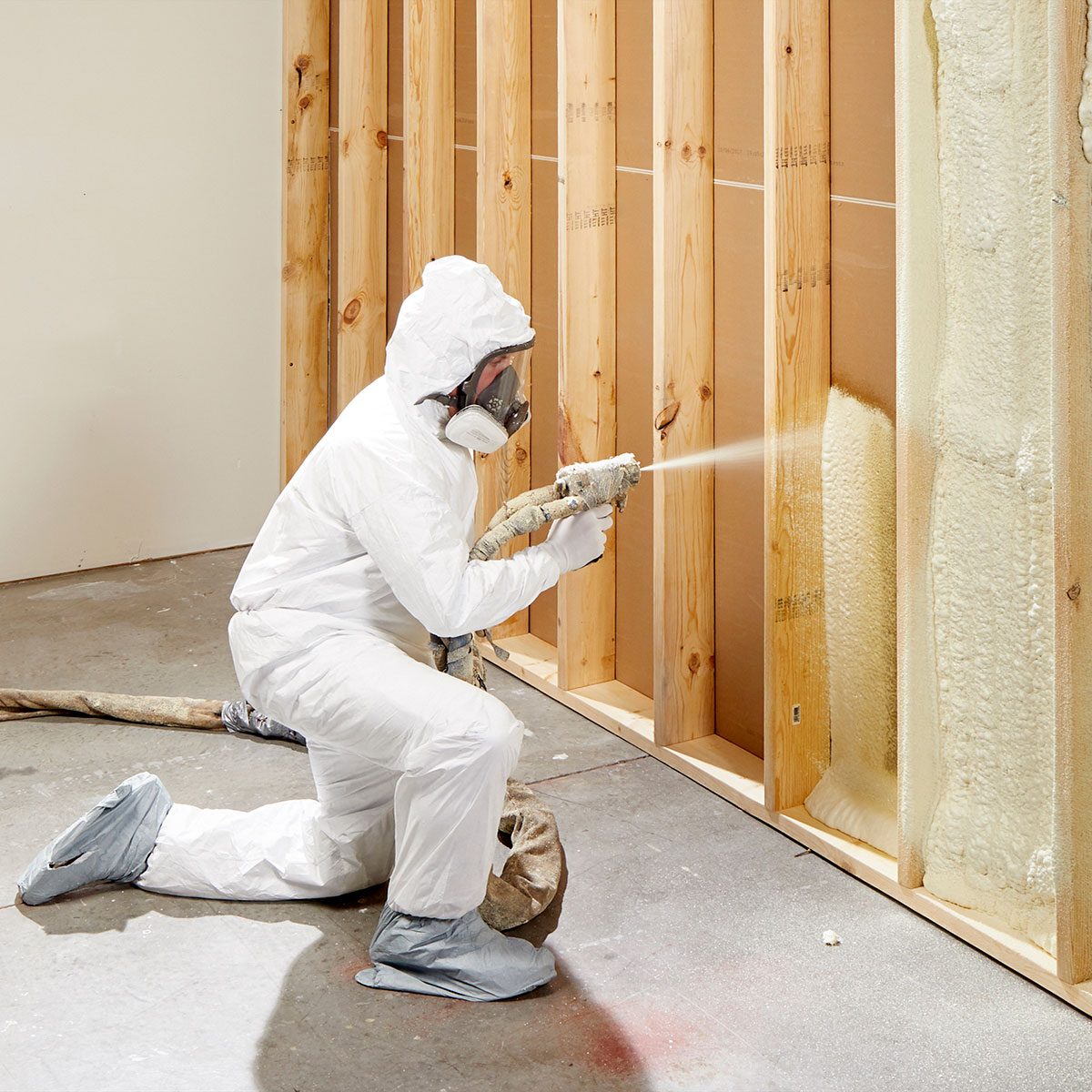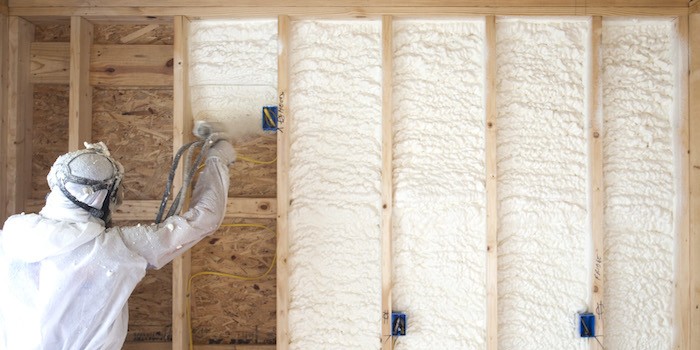Spray Foam: The Ultimate Remedy for Air Sealing and Insulation
Spray foam insulation has emerged as a leading remedy for efficient air sealing and thermal insulation, using an one-of-a-kind combination of residential or commercial properties that establish it apart from conventional approaches. Understanding the full extent of its benefits, installment procedures, and comparisons with various other insulation kinds is critical for making informed choices.
What Is Spray Foam?
Spray foam is a versatile insulation product that integrates the principles of air sealing and thermal resistance to enhance power effectiveness in structures. Made up primarily of polyurethane or other comparable substances, spray foam is used as a fluid that broadens upon contact with surface areas, producing a strong, constant layer of insulation. This special residential or commercial property permits it to fill up gaps, fractures, and voids that standard insulation products may neglect, giving a premium air seal.
There are two primary kinds of spray foam: open-cell and closed-cell. Open-cell spray foam is lighter and much more adaptable, using excellent audio absorption and a lower R-value per inch - Spray Foam. On the other hand, closed-cell spray foam is denser, offering a higher R-value, moisture resistance, and added structural integrity to building elements
The application process commonly includes specialized tools, guaranteeing a smooth application that sticks to different substratums, consisting of steel, timber, and concrete. This flexibility makes spray foam suitable for both brand-new buildings and retrofitting existing frameworks. Its ability to produce an impermeable obstacle significantly adds to reducing power intake and boosting interior air top quality, therefore making it a recommended option among home owners and contractors alike.
Benefits of Spray Foam Insulation
One of the most significant benefits of spray foam insulation is its remarkable ability to create a continuous air barrier, which efficiently lessens power loss. Unlike standard insulation materials, spray foam expands to fill splits and voids, guaranteeing that air leakage is considerably decreased. This particular not just enhances power efficiency yet also causes lower energy costs over time.
Additionally, spray foam insulation gives premium thermal resistance, adding to a more stable interior setting. Its high R-value per inch permits for effective insulation in constrained spaces, making it optimal for attic rooms, walls, and crawl rooms. Additionally, the moisture-resistant buildings of spray foam help prevent mold and mildew growth, advertising healthier living conditions.
One more critical advantage of spray foam insulation is its sound-dampening top qualities (Spray Foam). It effectively reduces sound transmission in between rooms, producing a quieter and extra comfy home atmosphere. The sturdiness of spray foam likewise stands out, as it does not droop or settle in time, maintaining its efficiency throughout its life-span
Just How Spray Foam Functions
Comprehending exactly how spray foam insulation functions is crucial for valuing its effectiveness in air securing and thermal resistance. Spray foam insulation contains 2 main parts: isocyanate and polyol resin. When these components are blended, they undergo a chain reaction that causes the material to broaden swiftly, creating a dense foam that loads dental caries, gaps, and splits.
As the foam broadens, it adheres to surface areas, creating a closed seal that dramatically reduces air seepage. This characteristic makes spray foam insulation highly efficient at protecting against drafts and moisture infiltration, which can bring about best site power loss and damage with time. In addition, the closed-cell version of spray foam offers premium thermal resistance due to its inflexible structure, properly lessening heat transfer.
The special residential or commercial properties of spray foam allow it to satisfy uneven surface areas, making sure comprehensive protection and a seamless barrier. As a result, spray foam insulation not only boosts energy efficiency yet also adds to improved indoor air high quality by decreasing the build-up of toxins and irritants. Inevitably, recognizing the mechanics behind spray foam underscores its function as an exceptional selection for insulation and air securing in both business and residential applications.
Installation Process Summary

Before installment, the space should be sufficiently cleansed and prepped, making sure that surfaces are cost-free from particles, wetness, and dirt. This step is important due to the fact that contaminants can compromise adhesion and overall efficiency. As soon as the location is prepared, the application entails blending the 2 elements of the spray foam, which increases upon get in touch with and fills voids effectively.
Trained professionals should conduct the installation, making use of specific tools to guarantee uniform coverage and optimum density. Security safety measures, consisting of using safety gear and making sure proper ventilation, are important throughout this procedure. After application, the foam usually remedies rapidly, creating a solid obstacle that boosts energy performance.
Contrasting Spray Foam to Typical Insulation
When examining insulation choices, spray foam insulation sticks out in contrast to other traditional products such as fiberglass and cellulose. One of the primary advantages of spray foam is its superior air sealing capabilities. Unlike fiberglass and cellulose, which can permit air infiltration, spray foam expands upon application, filling gaps and holes to develop a closed seal. This results in improved power effectiveness, as much less heated or cooled air gets away the home, causing reduced energy expenses.
Additionally, spray foam gives a greater R-value per inch than conventional insulation types, offering even more effective thermal resistance in a thinner account. This particular is specifically beneficial in spaces with restricted dental caries depth. Spray foam is immune to moisture and mold and mildew growth, which can find here be a substantial worry with cellulose and fiberglass, specifically in humid atmospheres.
However, spray foam insulation generally lugs a higher ahead of time expense than its conventional equivalents. Property owners should consider this preliminary financial investment against lasting energy cost savings and performance advantages. Ultimately, while both insulation kinds serve their objective, spray foam emerges as an advanced remedy for contemporary insulation requirements, particularly in terms of air securing and thermal performance.

Final Thought
In summary, spray foam insulation represents an extremely efficient solution for achieving ideal air securing and thermal resistance. Its one-of-a-kind properties, consisting of moisture resistance and sound dampening, make it appropriate for numerous applications in both new buildings and retrofitting jobs (Spray Foam). The first prices might be greater contrasted to typical insulation materials, the long-term benefits, such as significant power cost savings and boosted interior air quality, justify the investment and highlight its value in modern-day structure practices.
Spray foam insulation has actually emerged as a leading solution for efficient air sealing and thermal insulation, providing a distinct mix of properties that establish it apart from typical techniques.Spray foam is a functional insulation product that incorporates the principles of air securing and thermal resistance to enhance power performance in structures.When evaluating insulation options, spray foam insulation stands out in comparison to conventional materials such as fiberglass and cellulose. Inevitably, while both insulation kinds serve their purpose, spray foam arises as an extra innovative remedy for modern insulation requirements, especially in terms of air securing and thermal performance.
In recap, spray foam insulation stands for a highly efficient service for attaining optimum air securing and thermal resistance.